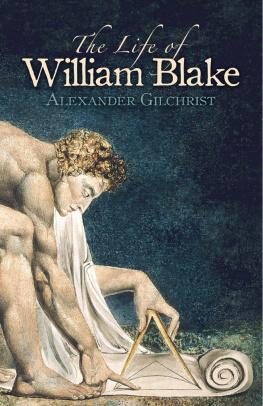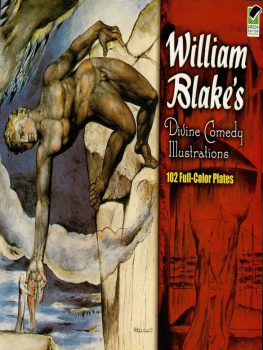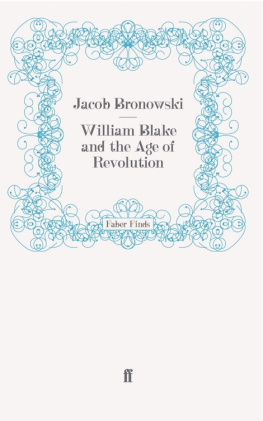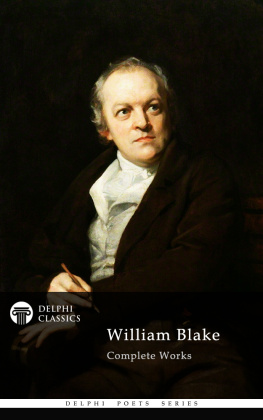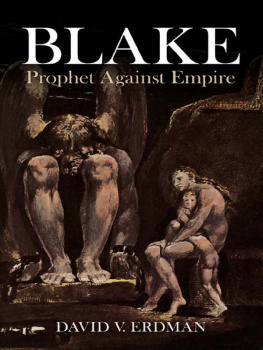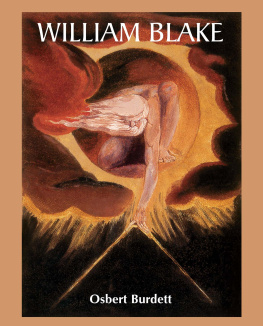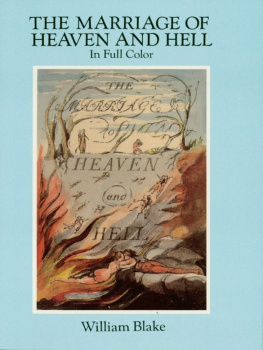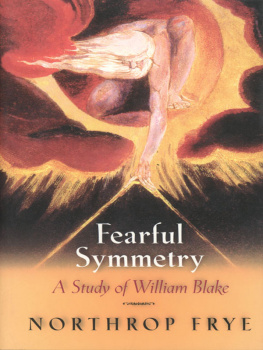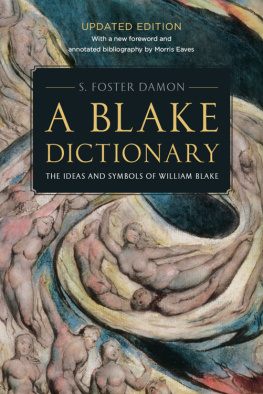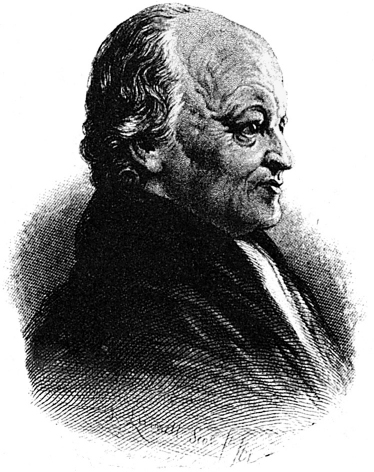
WILLIAM BLAKE
A PORTRAIT ON IVORY BY JOHN LINNELL, 1827
The Life of
William Blake
ALEXANDER GILCHRIST
Edited with an Introduction by
W. GRAHAM ROBERTSON
DOVER PUBLICATIONS, INC.
Mineola, New York
Bibliographical Note
This Dover edition, first published in 1998 and reissued in 2017, is an unabridged republication of the work, as originally published by John Lane Company, The Bodley Head, London, in 1907. [First publication: 1863]
Library of Congress Cataloging-in-Publication Data
Gilchrist, Alexander, 18281861.
The life of William Blake / Alexander Gilchrist.
p. cm.
Originally published: London: John Lane, 1907.
ISBN-13: 978-0-486-40005-1
ISBN-10: 0-486-40005-0
1. Blake, William, 17571827Biography. 2. Poets, English19th century Biography. 3. Poets, English18th centuryBiography. 4. ArtistsGreat BritainBiography. I. Title.
PR4146G5 1998
821.7dc21
[B]
97-35392
CIP
Manufactured in the United States by LSC Communications
40005003 2017
www.doverpublications.com
INDRODUCTION
S INCE the publication of this work in 1863 the position of William Blake in the worlds of Art and Literature has greatly changed. As a poet he stands on a level with his peers, yet apart from thema lonely voice before the dawn; the singer of the silent hour, before a wonderful burst of lyric melody hailed the birth of the nineteenth century.
As a painter his fame has spread more slowly, owing to the difficulty of seeing his works, which are still, for the most part, in private collections: nevertheless they now find an ever-widening circle of admirers.
Every scrap of Blakes long-neglected writings is eagerly sought for and discussed; the despised pictures emerge from the cellars and attics where they have spent the greater part of a century and find their way into salerooms, with results highly gratifying to their bewildered owners.
William Blake has come to his own at last, extolled alike by poets and painters as one of the supreme magicians of the pen and the brush.
For, in the case of this artist, his two chosen forms of expression must be studied side by side; Blake the poet and Blake the painter must both speak to us in their different languages, the one amplifying and sustaining the other, until we begin to know the third Blake, Blake the seer, the philosopher, and the teacher.
That so much of his poetical work has survived speaks more for its worth than any panegyric. His verses were practically unpublished. The Songs of Innocence and Experience are known throughout the world, yet the original edition (if edition it can be called) consisted probably of few more than twenty copies.
The Poetical Sketches, privately printed, hardly attained so large a circulation, for Blake, perhaps disliking the printed form, seems to have deliberately suppressed the little volumes.
The Prophetic Books are no less rare; of the Book of Ahania, there is but one copy, and Vala (first called The Four Zoas) long remained in manuscript in private possession.
As a final barrier between the poet and the world came the holocaust of Tatham, an Angel of the Irvingite Churcha Destroying Angel indeedwho, after the death of Mrs. Blake, is said to have burnt the whole mass of manuscript in her possession on the ground of religious scruples. Thus may have perished the Book of Oothoon, the Book of Moonlight, and many other treasures.
Dr. Garnett, in his monograph on Blake (Portfolio, 1895), mentions a visit from Tatham, during which he sought to convey that the precious legacy had been disposed of but not destroyed.
With regard to drawings this appears to be the case, as several collections of sketches carefully preserved and inscribed by Tatham have from time to time come to light; but for the manuscripts it is to be feared there is little hope.
For the public and the lover of perfect poetry, Blakes fame will live in the Poetical Sketches, the Songs of Innocence and Experience, the Book of Thel, and the occasional lyrics rescued from note-books and sketch-books by D. G. Rossetti and others.
The Prophetic Books, vast nebul of burning and germinating thoughts from which here and there shoot forth such perfect lyric stars as
And did those feet in ancient time
Walk upon Englands mountains green? (Milton),
or I saw a Monk of Charlemaine (Jerusalem), will almost inevitably remain unread save by those whose interest in the writers personality impels them to seek it in all his works. To them many beauties will be revealed as they search the majestic periods of Jerusalem, the passionate tirades of The Daughters of Albion, or the wailing cadences of Ahania, but for most the glory of the Prophetic Books will lie in their illustration, those marvellous garlands of design, rhythmic in line and fairy-like in fancy, which embrace and encircle the text, making of each page a decorative scheme absolutely satisfying and perfect in itself.
To the paintings of Blake scant justice has been done by his biographers, few of whom have seen more than those specimens included in National Collections.
He has ever been an Artist for Artists, who will gratefully echo Fuselis statement that he is damned good to steal from.
Flaxman, who himself paid many tributes to his genius, mentions, in sending to Hayley a copy of Blakes Poetical Sketches, that Mr. Romney thinks his historical drawings rank with those of Michael Angelo. The drawings seen by Romney were possibly the design from JobWhat is man that Thou shouldst try him every moment? and The Death of Ezekiels Wife, from which engravings were afterwards executed.
But no artist has, as yet, done for the paintings what Mr. Swinburne, in his Critical Essay, has done for the poems; and the somewhat misdirected raptures of the desultory enthusiast frequently harm his heros cause; for Blake of all great painters is perhaps the most unequal.
The enthusiast, carried away by the charming fancies scattered so lavishly throughout the works, vaunts to the skies any drawing which happens to amuse him, without due consideration of its artistic merit.
His delight is as a rule centred in the strangely fascinating sketch, The River of Life. Here, he exclaims, is something which I thoroughly understand: which, in fact, I could have done myself if I had thought of it! (Much virtue in If.)
But the conscientious criticas yet without the love of Blake in his heartwhen confronted with the drawing can only say, What you show me is not a picture at all. It has no composition. It is weakly drawn. It is badly colouredapparently by a child of ten with a penny paintbox.
And the critic is perfectly right. During the temporary absence of the painter, the poet has delightfully scribbled.
It is the pictorial counterpart of the Songs of Innocence cries the enthusiast. And the critic, knowing that comparison between this charming but careless sketch and the dainty perfection of the Songs is meaningless, becomes impatient and hastily condemns the whole life-work of Blake the painter.
But let him, adroitly avoiding the enthusiast, return alone to the pictures. Let him stand for a while before the Infant Christ riding on a Lamba radiant dream of childhood which as complete achievement may indeed rank with the Songs of Innocence; let him linger with sleeping Adam in the hush of falling waters where Eve is tempted beside the moon-lit stream; or note the colour-charged darkness of the Flight into Egypt, through which, angelled and canopied by a night of shadowy wings, the Holy Ones pass quietly from peril to peace.
Next page
